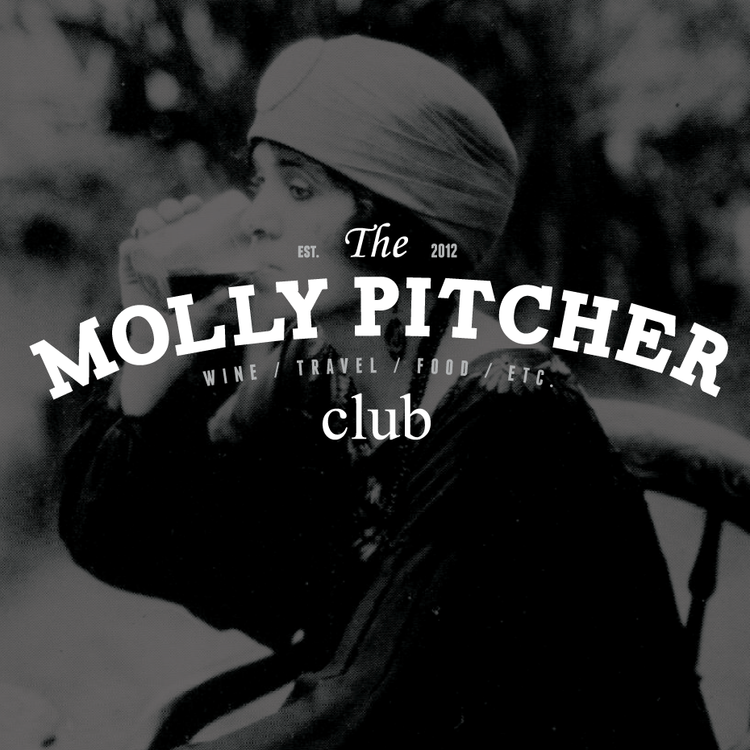Wine and Law: Counterfeiting
For those of you who think wine and law go together like hot sauce and wedding cake (or more traditionally oil and vinegar) - think again! So many areas of the wine industry are intertwined with complicated legal issues, and this post discusses one of the most fascinating issues of all: wine counterfeiting.
Photo Source: Luke McGarry via Bloomberg BusinessWeek
http://www.businessweek.com/articles/2012-03-11/an-insiders-guide-to-counterfeiting-wine
Wine Counterfeiting in the News
Earlier this year, one "unlucky billionaire" was awarded $12 million dollars in punitive damages (on top of the near $400,000 in compensatory damages) by a New York jury for being sold counterfeit wine. The french wine in dispute was allegedly previously owned by Thomas Jefferson. Turns out it was fake.
While the story of one billionaire swindled by another billionaire over the sale of allegedly centuries old wine does not necessarily tug at my heart strings - this case does shine light on the growing counterfeiting problem in the wine industry.
Wine Counterfeiting 101
The production of counterfeits is a problem across several industries, especially since counterfeiting is a lucrative business and the production of most goods moved overseas. Some common counterfeit items include: baby formula, medication and luxury fashion items. In fact, the production of counterfeit luxury handbags, sunglasses and other accessories is a billion dollar industry all by itself.
Counterfeit wine, on the other hand, remains largely only a problem in the Asian market and for high end collectors. (So no worries - that $15 bottle of reisling is probably legit). Regardless, if you enjoy a good con-artist tv show (White Collar anyone?!?!) or simply want to learn how to protect your investments, the process of counterfeiting is interesting. My research revealed the following themes for counterfeiting wine:
- Counterfeiters target older vintages. These bottles are more likely to sit in a collector's cellar, likely to remain closed, or if they are opened, the drinker is likely to accept potentially iffy tastes given the age of the wine.
- Counterfeiters commonly modify the fraudulent bottle to look like the original bottle. There are several common approaches, including: relabeling, recycling, or "reverse fraud."
- The upside to relabeling is that it is the easiest approach, especially given today's technology. However, an examination of the cork (which may reveal the original producer) could reveal the fraud.
- Recycling an empty original bottle solves the problem of a faulty look, however, those empty original bottles are more costly (try over $1,000 on the black market) and high-end producers now use anti-counterfeiting techniques as a defense.
- Finally, reverse-fraud is the act of purchasing a real bottle, finding a reason to send it back, but sending a counterfeit bottle back and keeping the real one. That is bold sir.
According to wineauthentication.com, the top ten most common counterfeit wines include:
Cheval Blanc 1921,
Cheval Blanc 1947,
Lafite 1787 Thomas Jefferson (single bottle format),
Lafite 1870,
Lafleur 1947,
Lafleur 1950,
Latour a Pomerol 1961,
Margaux 1900,
Petrus 1921,
Petrus 1947.
What do all these wines have in common? Bottom line: they are old, rare and pricey.
Photo Source:
http://www.anotherwineblog.com/archives/5185
How does the law come into play?
Should you some day question the legitimacy of your wine and it is discovered that it is counterfeit - you have some legal remedies. Koch argued a successful claim for
fraud.
A successful claim for fraud (in plain english) requires the plaintiff to show
somebody lied to you on purpose, with the goal of screwing you, you fell for it and you actually got screwed.
A claim of wine fraud could be brought against someone you contracted with to buy wine or even auction houses. If you are successful, you have the ability (happily) to collect both compensatory and punitive damages.
Takeaway?
So what is to be learned from all this? #1 Don't ever but a bottle of wine from Rudy Kurniawan (most famous wine counterfeiter). #2 Do your due diligence if you are considering buying pricey vintage wine. #3 Your everyday wine purchases are likely legit.
If only the rest of us could be so lucky as to buy phony wine from a skeezey rich guy... oh well, better luck next time!
Cheers!


